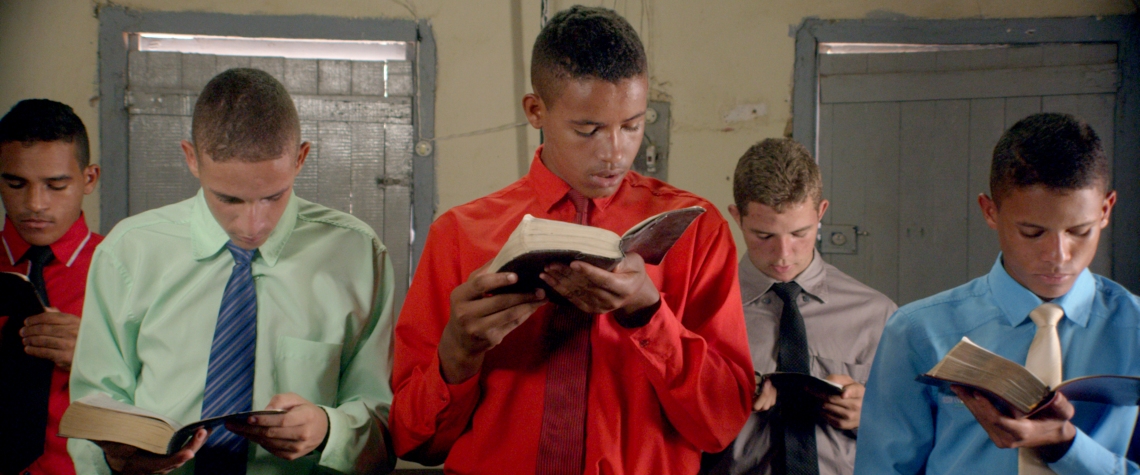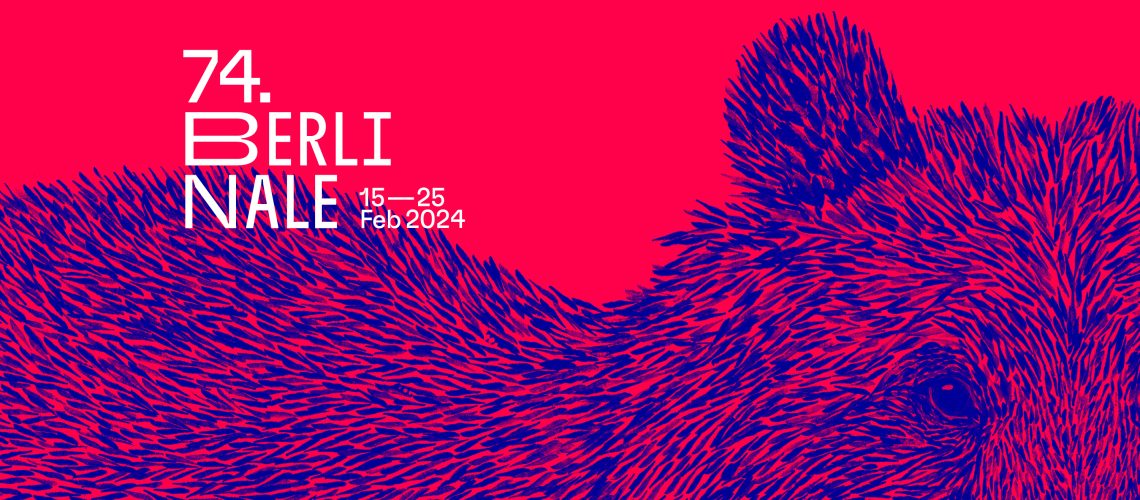Bárbara Wagner and Benjamin de Burca are back at Berlinale Shorts and gave us an impression of their ambition in the new film and told us about future projects.
Born in Brasilia, Brazil in 1980, Bárbara Wagner graduated from the Dutch Art Institute in Arnhem in 2012. Since 2011 Bárbara has been collaborating with Benjamin de Burca, who was born in Munich, Germany in 1975 and studied fine art at the Glasgow School of Art and the University of Ulster. Their work has featured at festivals and in exhibitions including at VideoBrasil, the Panorama de Arte Brasileira and the Biennale, all in São Paulo, and at the 2017 Skulptur Projekte Münster. Now based in Recife, Brazil, their collaborative film „Estás vendo coisas“ screened in the 2017 Berlinale Shorts.
This year the filmmaker duo is back with their new work „Terremoto Santo“ – A film about the historically Pernambuco state in the northeast of Brasil that was characterised agriculturally by the sugarcane industry. Today there is a new sector in the economy: various evangelical Christian groups are on the rise. The mantra of the evangelicals is the attainment of improvements in one’s personal and economic situations through adherence to an extreme religious practice. „Terremoto Santo“ focuses on a young generation of priests, producers and singers who hail from a rural area and make gospel music. The filmmakers take into account the environment of the protagonists in order to make ethics, morality and life visible in an aesthetic agglomeration.

What is your ambition in the film?
We are interested in cinema as a form of conversation, which means we don’t think of our films as being ‚about‘ a subject, but ‚in a negotiation with‘ the players of the music genre we are looking at. In ‚Terremoto Santo‘ (as was also the case in ‚Estás Vendo Coisas‘, 67th Berlinale Shorts) we come closer to artists of a young generation who are transforming popular traditions into a contemporary social-media oriented phenomenon. It’s a musical informed by the aesthetics of Gospel songs in a moment when we see the rise of the evangelic church reflected in a massive shift of values in Brazilian society. If it’s important to talk about them, it’s even more crucial to be able to talk to them.
What do you like about the short form?
The nature of short films suits the experimentation we are trying to develop in our practice between visual art and cinema. So, it’s more about how our works reach people whether they are in a museum or in a cinema than about the duration of the short form: a bad film can seem long, while a good film can seem too short regardless of the length it has.
What are your future plans?
We are soon joining a group of poets who are changing how hiphop is perceived in Canada in the production of a new short film that will be exhibited in Front International in July. Back in Brazil, we are further developing a script that might result in a more operatic piece… a feature maybe?


